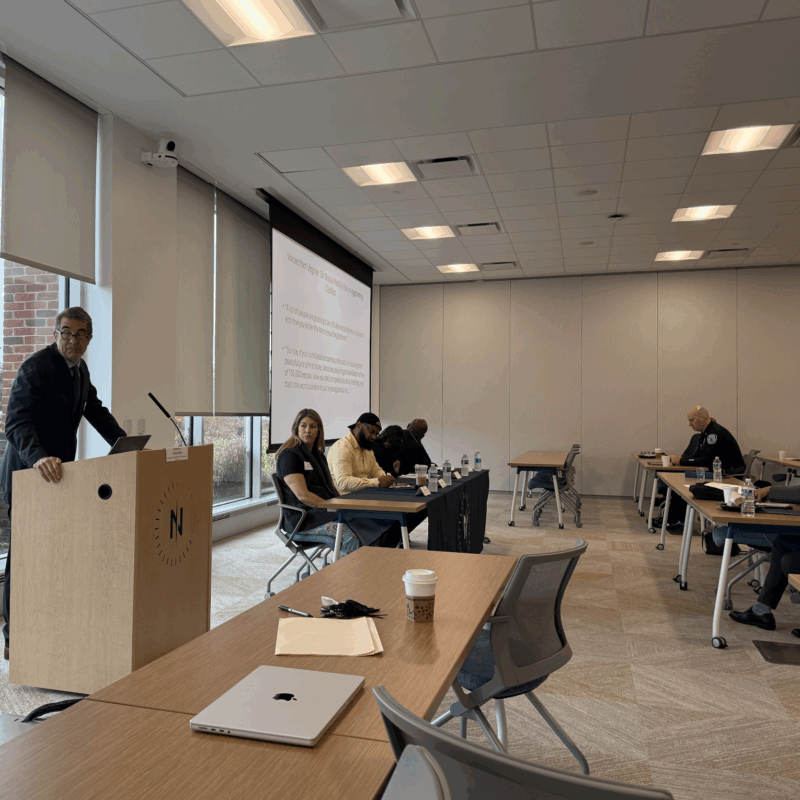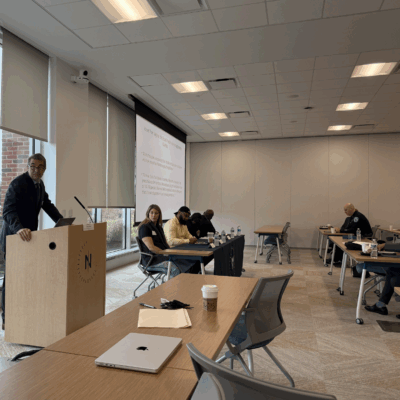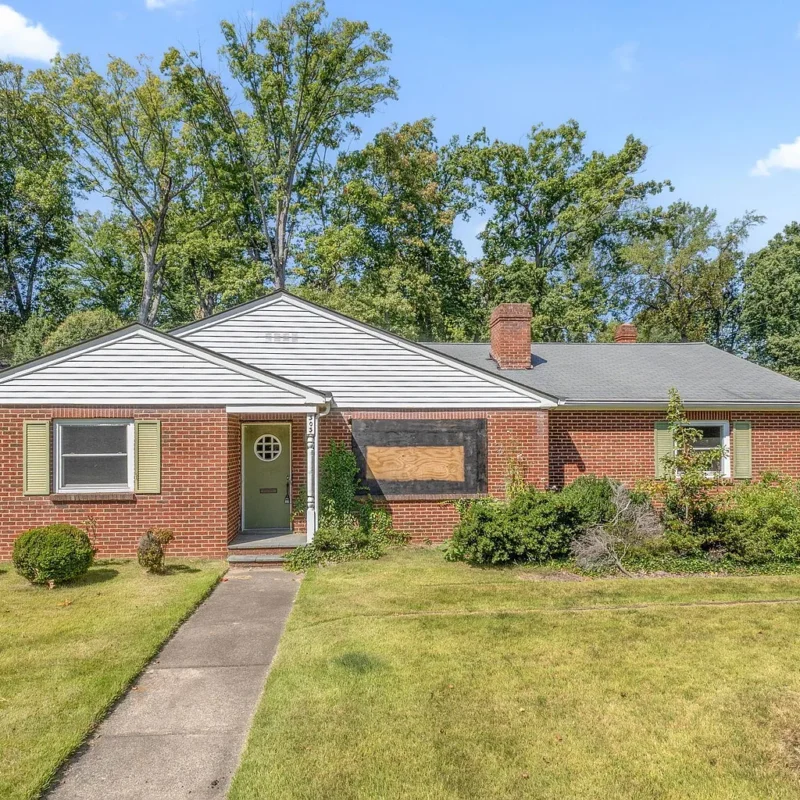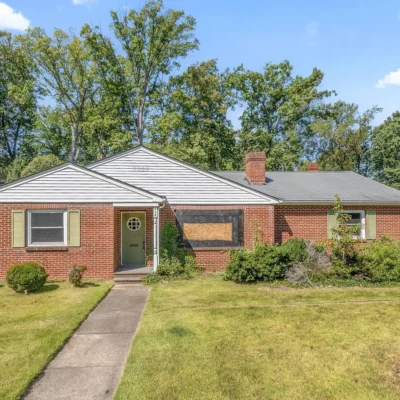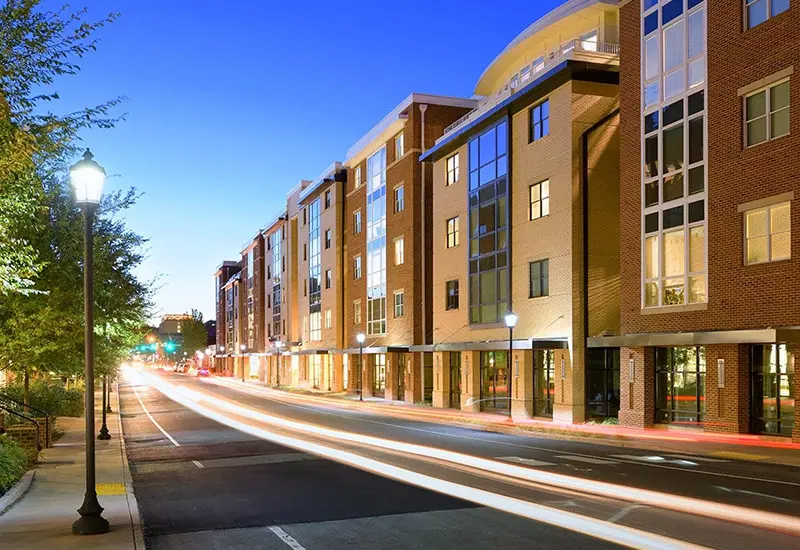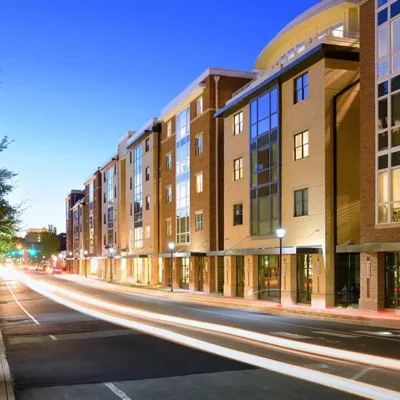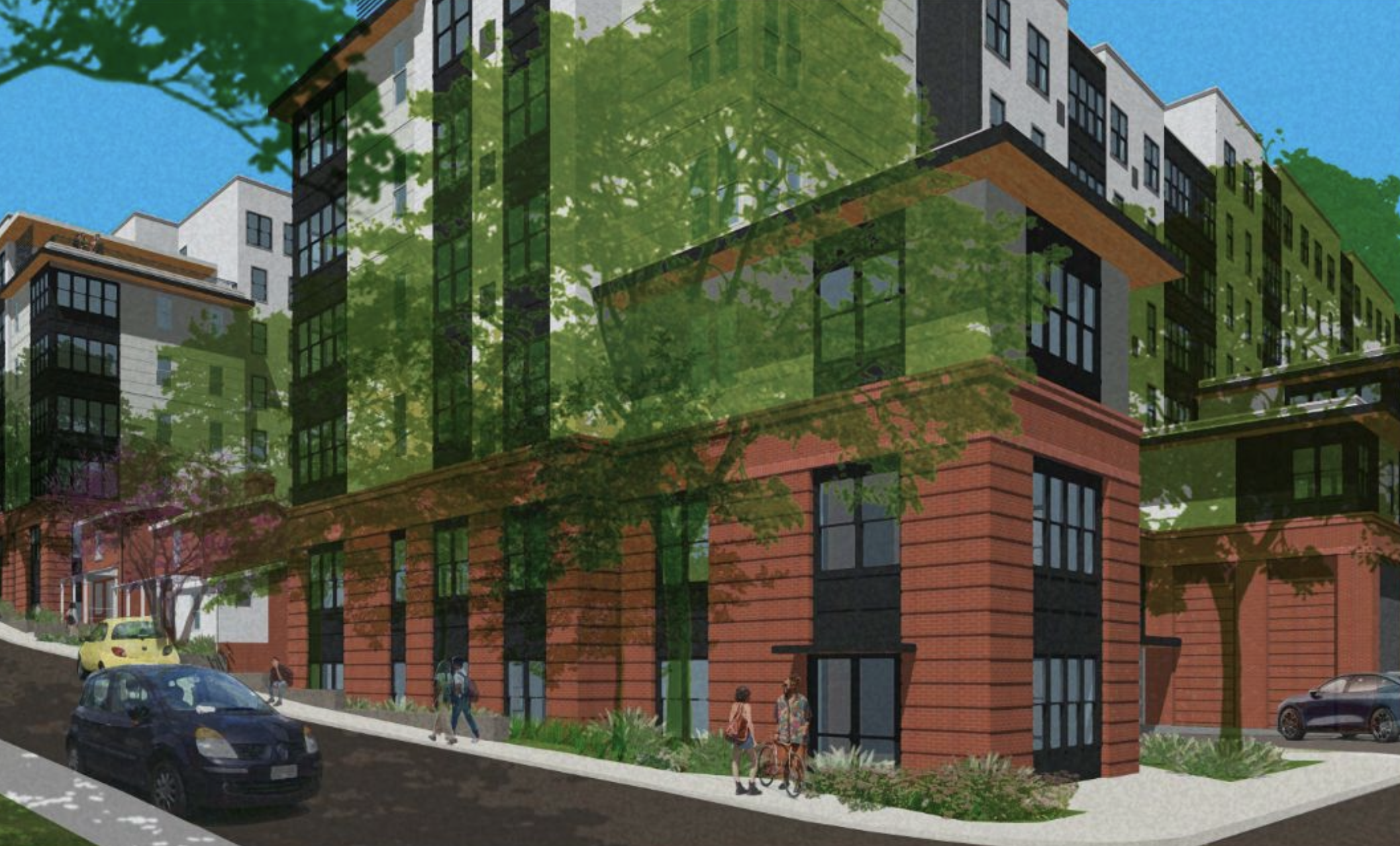
For months, the Public Housing Association of Residents has been asking Charlottesville City Council to step in to halt two proposed student housing buildings, on West Main Street and in Fifeville.
LV Collective has filed plans for an 11-story building at 843 W. Main St., while Landmark Properties is seeking staff approval for a seven-story building on Seventh Street. Both are allowed without further permission from Council under the zoning code approved in December 2023.
“We need to change the zoning around the edge of low-income communities so those buildings like LV Collective and the Seventh Street [project] doesn’t marginalize our Westhaven community,” said Joy Johnson, PHAR’s chair, at the November 3 City Council meeting.
The request from PHAR is not currently within the scope of minor amendments to the code, which will go before the Planning Commission on December 9. Those are considered Tier 2 amendments and involve changes for clarity rather than adjusting the rules.
“Anything that would essentially change the land use vision that’s been adopted already through the Comprehensive Plan would be considered a Tier 3 amendment,” said NDS Director Kellie Brown.
Brown said it would be at least a year before NDS staff will be able to begin a review. In the meantime, work will begin in early 2026 for small area plans for the 10th and Page and Rose Hill neighborhoods.
City Councilor Michael Payne said he wants NDS to be able to move faster to adjust zoning in areas such as around Westhaven, and said that decision is up to elected officials.
“We, in extensive areas of 10th and Page and Fifeville and Rose Hill as well, are essentially allowing student housing by-right at seven to 11 stories, which is not just a change for the neighborhoods at the aesthetic level, but has an economic impact in terms of changing the businesses there, changing the demographic makeup of the neighborhoods,” Payne said.
When Brown said staff could address some of those concerns through the small area planning process, Payne said the community should come first and needs leverage it lacks under the existing zoning. That could take the form of requiring special use permits as under the 2023 code, or special exceptions.
City Councilor Lloyd Snook said he had made a pitch near the end of the zoning code’s development to require a special use permit for buildings above a certain height in order to give the public an opportunity to comment. He didn’t get support at the time and added the city has never quite gotten the balance right between allowing by-right development and pressure on sensitive neighborhoods.
“For better or for worse, Council made some affirmative decisions at the end of 2023 that have left us in a situation where Council doesn’t overtly have much control over some of what’s happening now,” Snook said.
City Councilor Brian Pinkston will not serve a second term, having lost the Democratic primary in June. He suggested the conversation wait until after Jen Fleisher joins the elected body in December.
“I think just a call is going to have to be made,” Pinkston said. “I also feel like there has been enough feedback from the community on this topic that we owe it to people to have such a more direct response.”
A work session will be held in January to discuss ways to mitigate the impact of student housing in city neighborhoods. At the end of the meeting, Johnson said that would be too late.
“We need UVA to [house] students on campus away from other neighborhoods,” Johnson said. “Luxury student housing will not get UVA students out of our residential neighborhood.”
